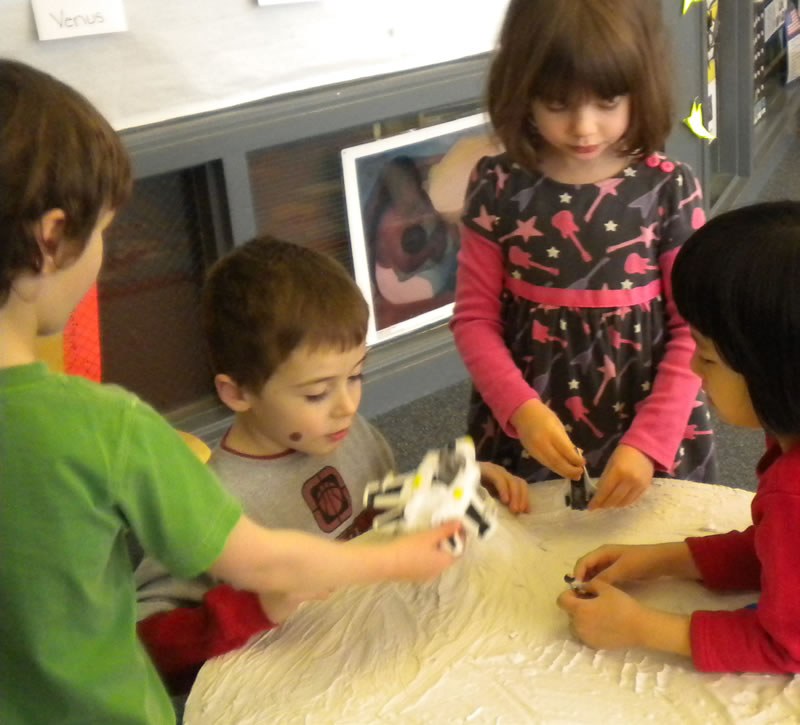Understand ways transitions and change affect young children. Learn ways to prepare children for changes.

In caring for children, one thing you can be certain of is change. To change means to transition: changing from one state, stage, place, or subject to another. Take a look at the words associated with transition:
Change, evolution, conversion, shift, move, switch, alteration, modification
Transitions require young children to put forth great amounts of effort, not only physically, but emotionally, socially, and cognitively; all areas of development. There is a lot of skill needed to be able to transition. No wonder transitions can be challenging!
Transitions: predictable, unpredictable, and emotional
To understand how transitions affect children, think of how transitions affect you. Imagine what it feels like to be told to stop doing something when you are not ready; when it is someone else's idea and not your own. Think also how it feels to make several changes in your day--it can be exhausting! When you understand what you are asking of children, you are better able to make developmentally appropriate decisions.
Take a look at the transitions in your program. Make a list of the predictable transitions in your day, such as arrival, free play, eating times, clean-up, or going outside. Next make a list of unpredictable transitions that may arise, such as a child not feeling well, a child taking another child's toy, a block building falling down, an unscheduled visitor, fire drill, bad weather, and so forth.
Review the number of times you ask or expect children to make transitions and reflect on whether or not the number of transitions needs to be changed. If you have children who often fall apart when transitioning, or possibly have challenging behaviors before, during, and after transitions, you may want to lessen the number of transitions in your programming or plan for more support.
Another important concept to consider is emotional transitions. Emotional transitions are when a child's emotional state is altered for some reason (the transition may even be what alters the emotion!). Examples might be a child missing her parent, frustration with an activity or toy, fear of new experience, too many stimuli, or the child's inability to express himself with words.
Unpredictable or challenging transitions often remind children they miss their parents. Therefore, early educators need to partner with parents in discussing the best ways to comfort their child and to build nurturing relationships with children. When these two foundations are set, the early educator will have more success in meeting the child's needs.
Transition preparations
Children transition better when they are prepared: They know what is about to change, they know what they will need to do, and they have caring adults to help. Look to the following for some ideas on preparing for transitions:
Be supportive, attentive, and nurturing
Transitions work well for children when they feel well cared for and nurtured. Children are also less anxious when they trust their caregivers and know they are non-judgmental. Respond to children's needs with reassurance, gentleness, and kindness.
Be aware of child development
Having a sense of child development helps you understand what general skills children have or are working on. Knowing these milestones and skills allows you to provide children what they need to transition.
Know each child well
A child's age provides us with general information on what they may be able to do, but knowing the child well provides the best information. Know the child's interests, likes, dislikes, fears, comforts, temperament, family, culture, abilities, and overall background.
Know yourself well
Know what you need for your day to go well and know what helps you in stressful situations.
Prepare environments that support transitions
Just as adults guide children, so do environments. Consider how environments can be arranged as well as what materials in the environment will support transitions.
Tips #1006

